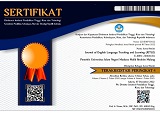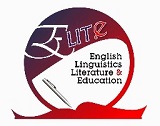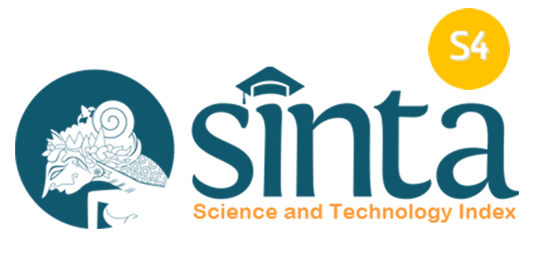Enhancing tourist experience through interactive speaking: A practical application of english communication skills at the tourist information centre in Banyuwangi
Abstract
Keywords
Full Text:
PDFReferences
Anam, M. M., & Rachmadian, A. (2020). Need analysis of English language usage for Tourism university students. EnJourMe (English Journal of Merdeka) : Culture, Language, and Teaching of English, 5(2), 178–187. https://doi.org/10.26905/enjourme.v5i2.5105
Chen, M., Pei, T., Jeronen, E., Wang, Z., & Xu, L. (2022). Teaching and learning methods for promoting sustainability in tourism education. Sustainability, 14(21), Article 21. https://doi.org/10.3390/su142114592
Clarke, T. B., Murphy, J., & Adler, J. (2020). Celebrity chef adoption and implementation of social media, particularly pinterest: A diffusion of innovations approach. International Journal of Hospitality Management, 57, 84–92. https://doi.org/10.1016/j.ijhm.2016.06.004
Dosad, M. (2024). Understanding ambiguity in statutory language and its impact on judicial interpretation (SSRN Scholarly Paper No. 5033910). Social Science Research Network. https://papers.ssrn.com/sol3/papers.cfm?abstract_id=5033910
Farmaki, A. (2018). Tourism and hospitality internships: A prologue to career intentions? Journal of Hospitality, Leisure, Sport & Tourism Education, 23, 50–58. https://doi.org/10.1016/j.jhlste.2018.06.002
Hoffjann, O. (2022). Between strategic clarity and strategic ambiguity – oscillating strategic communication. Corporate Communications: An International Journal, 27(2), 284–303. https://doi.org/10.1108/CCIJ-03-2021-0037
Ijabah, N., & Amrullah, Q. L. (2023). Need analysis of English tourism: The evidence from the employees of tourism industry. Acitya: Journal of Teaching and Education, 5(2), Article 2. https://doi.org/10.30650/ajte.v5i2.3590
Laba, I. N., Dewi, P. C., & Astawa, I. G. (2025). Evaluating AI platforms for tourism English: Insights into sociolinguistic and pragmatic competence development. International Journal of Society, Culture & Language, 13(1), 242–256. https://doi.org/10.22034/ijscl.2025.2052822.3923
Lim, W. M. (2024). What is qualitative research? An overview and guidelines. Australasian Marketing Journal. https://doi.org/10.1177/14413582241264619
Moodie, I. (2020). REVIEW Anne Burns and Jack C. Richards (eds): The Cambridge guide to learning English as second language. Cambridge University Press, 2018. Applied Linguistics, 41(2), 320–322. https://doi.org/10.1093/applin/amy047
Ngah, E., Fauzi, W. J., Radzuan, N. R. M., Abdullah, H., Ali, A. Z. M., Abidin, N. A. Z., & Fadzillah, F. I. M. (2022). Snapticon: Developing effective listening skills for group oral discussion. Asian Journal of University Education, 18(23), 361–374.
Prachanant, N. (2012). Needs analysis on English language use in Tourism industry. Procedia - Social and Behavioral Sciences, 66, 117–125. https://doi.org/10.1016/j.sbspro.2012.11.253
Rane, N. L., Achari, A., & Choudhary, S. P. (2023). Enhancing customer loyalty through quality of service: Effective strategies to improve customer satisfaction, experience, relationship, and engagement. International Research Journal of Modernization in Engineering Technology and Science, 5(5), 427–452. https://doi.org/10.56726/IRJMETS38104
Reincke, C. M., Pieterman-Bos, A., Bredenoord, A. L., & Van Mil, M. H. W. (2024). Learning (how) to listen: A key aspect in training future scientists for meaningful dialogue with society. International Journal of Science Education, Part B, 1–16. https://doi.org/10.1080/21548455.2024.2347531
Richards, J. C. (2015). Key issues in language teaching. Cambridge University Press.
Rinda, R. K., Rohmana, W. I. M., & Indrastana, N. S. (2019). An analysis of informative speaking on Kakenya Ntaiya’s speech: A girl who demanded school. Journal of English Language Teaching and Learning (JETLE), 1(1), Article 1. https://doi.org/10.18860/jetle.v1i1.7754
Thongphut, A., & Kaur, J. (2023). “Doing Explicit” in hospitality and tourism service encounters in English as a lingua franca. English for Specific Purposes, 70, 224–236. https://doi.org/10.1016/j.esp.2023.01.003
Wang, H., Du, R., & Olsen, T. (2023). Feedback mechanisms and consumer satisfaction, trust and repurchase intention in online retail. Information Systems Management, 35(3), 201–219. https://doi.org/10.1080/10580530.2018.1477301
DOI: https://doi.org/10.18860/jetle.v6i2.32815
Refbacks
- There are currently no refbacks.
Jalan Gajayana 50 Malang 65144, Jawa Timur, Indonesia

This work is licensed under a Creative Commons Attribution-ShareAlike 4.0 International License.
Indexed by





